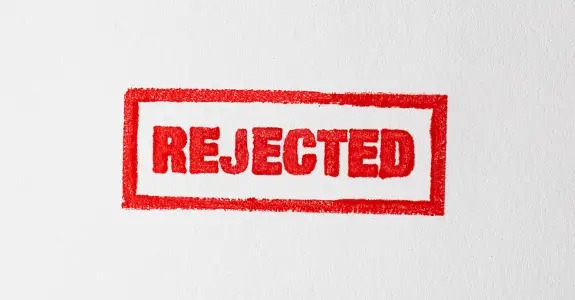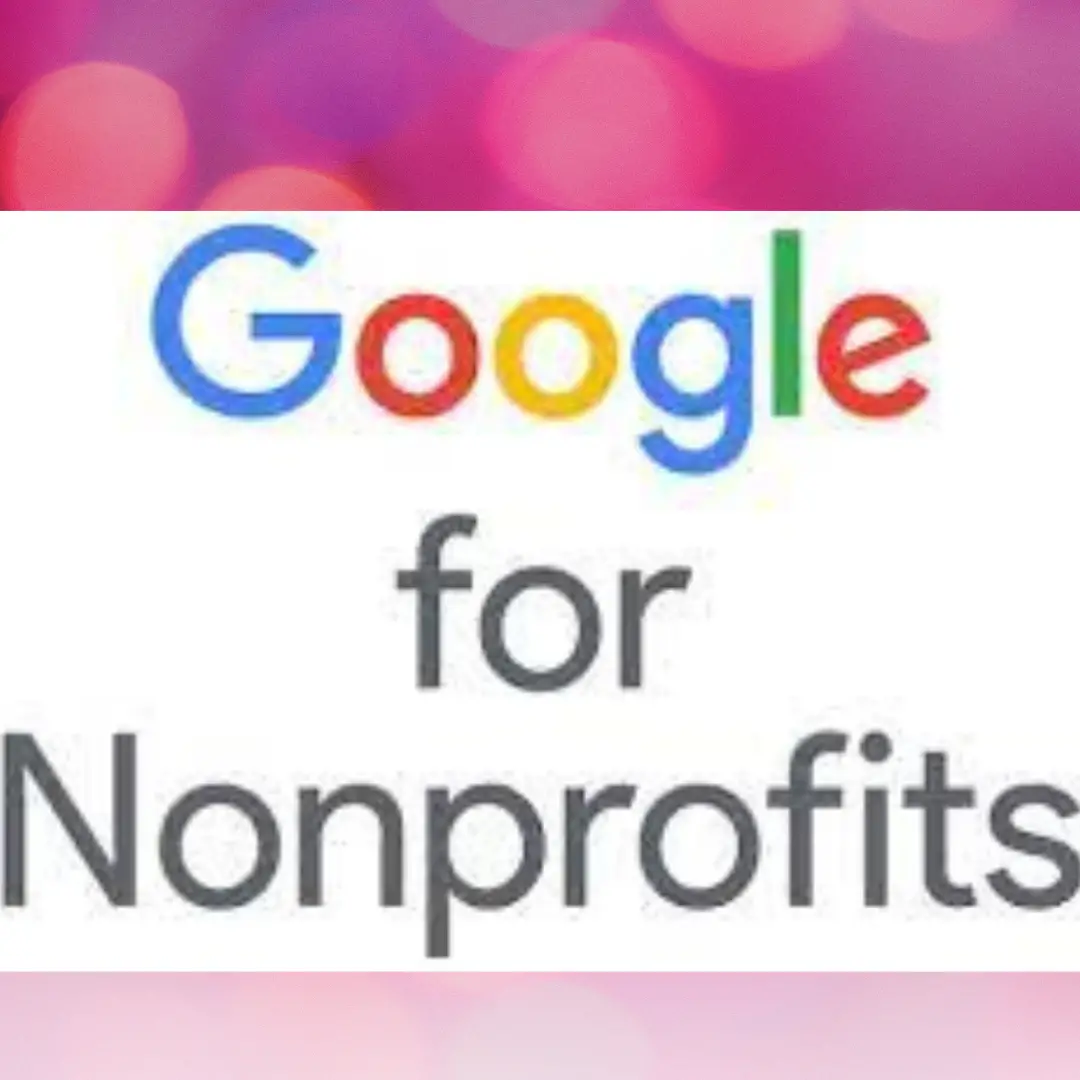How to Respond to a Donation Rejection and turn into a potential win ? Donation rejection is a common occurrence in the world of fundraising, and it can be difficult to handle.
However, with the right approach, you can respond in a way that maintains a positive relationship with the donor and potentially opens up the possibility for future donations.
Here’s how:
- Acknowledge the rejection: Start by thanking the donor for considering your organization. This shows that you appreciate their time and thought, even if they ultimately decided not to donate.
Example: “Thank you for taking the time to consider supporting our organization. We truly appreciate your generosity.”
- Express gratitude: Regardless of the outcome, you should always express gratitude for the donor’s willingness to engage with your organization. This helps maintain a positive relationship for the future.
Example: “We understand that there may be many factors that influence a decision not to donate, and we respect your choice. Thank you again for your interest in our cause.”
- Offer information: If the donor rejected your request because they wanted more information, use this as an opportunity to provide additional details. This can help address any concerns they may have and may lead to future donations.
Example: “If you’d like to learn more about our organization, we’d be happy to provide you with additional information. Just let us know what specific areas you’re interested in and we’ll be glad to help.”
- Follow up: If the donor has indicated that they may be open to future donations, be sure to follow up with them in the future. This could be through email, phone, or another form of communication.
Example: “We understand that your decision not to donate at this time may not be a permanent one. If you have any questions or if there’s anything else we can do to help, please don’t hesitate to reach out. We’d be happy to hear from you.”
By responding to a donation rejection in a positive, respectful, and informative way, you can maintain a positive relationship with the donor and potentially secure future donations.
More Practical Examples Of How To Respond To A Donation Rejection
Example 1:
“Thank you for considering a donation to support our organization. While it’s disappointing to hear that you won’t be able to donate at this time, we understand that everyone has different priorities and commitments. We appreciate the time you took to consider supporting us and would love the opportunity to stay in touch. If you have any questions or would like to learn more about the impact of your potential donation, please don’t hesitate to reach out. We’d be happy to chat with you. Thank you again for your interest.”
Example 2:
“We understand that the decision to donate is a personal one and we’re grateful that you took the time to consider supporting our organization. Although we’re disappointed to hear that you won’t be able to donate at this time, we appreciate your ongoing interest in our cause. If you ever have any questions or would like to learn more about the positive impact of your potential donation, please don’t hesitate to reach out. We’d be happy to chat with you. Thank you again for your time and consideration.”
Example 3:
“Thank you for considering a donation to our organization. While it’s not possible for everyone to support us at this time, we’re grateful for the opportunity to connect with you. If there’s anything else we can do to help or if you have any questions about our organization, please don’t hesitate to reach out. We’d be happy to chat with you. Thank you again for your interest and support.”
By responding in this manner, you express gratitude for the donor’s interest in your organization and offer them an open invitation to stay engaged, which could lead to future donations.







Excellent website. Lots of helpful info here. I’m sending it to several pals ans additionally sharing in delicious. And obviously, thanks in your sweat!
F*ckin’ awesome things here. I’m very glad to see your post. Thank you so much and i am looking forward to contact you. Will you kindly drop me a e-mail?
OF Creator Account Fully Verified – https://urbancrocspot.org/product-tag/only-fans-account/
OnlyFans Account With Balance – https://urbancrocspot.org/product-tag/only-fans-account/
OnlyFans Accounts With Balance – https://urbancrocspot.org/product-tag/only-fans-account/
OF Accounts With Balance
OnlyFans Account Seller – https://urbancrocspot.org/product-tag/only-fans-account/
Buy OnlyFans Creator Account – https://urbancrocspot.org/accounts/
Buy OnlyFans Accounts – https://urbancrocspot.org/accounts/
NaturalLuvsBeauty – The Comfy Princess – LiaMirandaLinzy Only Fans Leaked Fansly Leaks Mega Folder Download Link ( https://UrbanCrocSpot.org )
Ms LyLy Only Fans Leaked Fansly Leaks Mega Folder Download Link ( https://UrbanCrocSpot.org )
Miss Des Only Fans Leaked Fansly Leaks Mega Folder Download Link ( https://UrbanCrocSpot.org )
Thanks for sharing superb informations. Your site is so cool. I am impressed by the details that you have on this website. It reveals how nicely you perceive this subject. Bookmarked this web page, will come back for more articles. You, my friend, ROCK! I found just the info I already searched everywhere and simply could not come across. What a great website.
Arabelle Raphael Only Fans Leaked Fansly Leaks Mega Folder Download Link ( https://UrbanCrocSpot.org )
Erzabel X Only Fans Leaked Fansly Leaks Mega Folder Download Link ( https://UrbanCrocSpot.org )
Kim Velez Oficial Only Fans Leaked Fansly Leaks Mega Folder Download Link ( https://UrbanCrocSpot.org )
Attractive section of content. I just stumbled upon your weblog and in accession capital to assert that I acquire in fact enjoyed account your blog posts. Any way I’ll be subscribing to your feeds and even I achievement you access consistently quickly.
SazonDePuertoRicoINC Only Fans Leaked Fansly Leaks Mega Folder Download Link ( https://UrbanCrocSpot.org )
Ken Brazy Only Fans Leaked Fansly Leaks Mega Folder Download Link ( https://UrbanCrocSpot.org )
uDream of Jordan VIP Only Fans Leaked Fansly Leaks Mega Folder Download Link ( https://UrbanCrocSpot.org )
Mikayla D VIP – Mikayla Demaiter Only Fans Leaked Fansly Leaks Mega Folder Download Link ( https://UrbanCrocSpot.org )
The Real Touch XX Only Fans Leaked Fansly Leaks Mega Folder Download Link ( https://UrbanCrocSpot.org )
Thanks , I’ve recently been searching for information approximately this subject for ages and yours is the best I have discovered till now. But, what about the bottom line? Are you positive concerning the source?
Amira X Evans Only Fans Leaked Fansly Leaks Mega Folder Download Link ( https://UrbanCrocSpot.org )
Tatted Baddie Only Fans Leaked Fansly Leaks Mega Folder Download Link ( https://UrbanCrocSpot.org )
Caramel Crazee Only Fans Leaked Fansly Leaks Mega Folder Download Link ( https://UrbanCrocSpot.org )
Envy Kells x Only Fans Leaked Fansly Leaks Mega Folder Download Link ( https://UrbanCrocSpot.org )
VivaLaKipp Only Fans Leaked Fansly Leaks Mega Folder Download Link ( https://UrbanCrocSpot.org )
Tiffy Monroe X Only Fans Leaked Fansly Leaks Mega Folder Download Link ( https://UrbanCrocSpot.org )
Love Bug Chanel Only Fans Leaked Fansly Leaks Mega Folder Download Link ( https://UrbanCrocSpot.org )
Ms Thick Overload Only Fans Leaked Fansly Leaks Mega Folder Download Link ( https://UrbanCrocSpot.org )
Nany Palacio Only Fans Leaked Fansly Leaks Mega Folder Download Link ( https://UrbanCrocSpot.org )
LotusBombb Only Fans Leaked Fansly Leaks Mega Folder Download Link ( https://UrbanCrocSpot.org )
Infinity Couple Only Fans Leaked Fansly Leaks Mega Folder Download Link ( https://UrbanCrocSpot.org )
Tasty Tracey VIP Only Fans Leaked Fansly Leaks Mega Folder Download Link ( https://UrbanCrocSpot.org )
Myah Janes VIP Only Fans Leaked Fansly Leaks Mega Folder Download Link ( https://UrbanCrocSpot.org )
The Real Britt Fitt Only Fans Leaked Fansly Leaks Mega Folder Download Link ( https://UrbanCrocSpot.org )
Sasha Stallion Only Fans Leaked Fansly Leaks Mega Folder Download Link ( https://UrbanCrocSpot.org )
Toveyah Only Fans Leaked Fansly Leaks Mega Folder Download Link ( https://UrbanCrocSpot.org )
FoxyBrown FANSLY Only Fans Leaked Fansly Leaks Mega Folder Download Link ( https://UrbanCrocSpot.org )
Chrissy K Only Fans Leaked Fansly Leaks Mega Folder Download Link ( https://UrbanCrocSpot.org )
Afro Sunshine Only Fans Leaked Fansly Leaks Mega Folder Download Link ( https://UrbanCrocSpot.org )
SheSoThixk Only Fans Leaked Fansly Leaks Mega Folder Download Link ( https://UrbanCrocSpot.org )
Mini Nina Only Fans Leaked Fansly Leaks Mega Folder Download Link ( https://UrbanCrocSpot.org )
Jessyy Renn Only Fans Leaked Fansly Leaks Mega Folder Download Link ( https://UrbanCrocSpot.org )
Korina Kova Only Fans Leaked Fansly Leaks Mega Folder Download Link ( https://UrbanCrocSpot.org )
Hell Bunny k Only Fans Leaked Fansly Leaks Mega Folder Download Link ( https://UrbanCrocSpot.org )
Real Princess Only Fans Leaked Fansly Leaks Mega Folder Download Link ( https://UrbanCrocSpot.org )
Slavic Caramel FANSLY Only Fans Leaked Fansly Leaks Mega Folder Download Link ( https://UrbanCrocSpot.org )
Natalie Turner Only Fans Leaked Fansly Leaks Mega Folder Download Link ( https://UrbanCrocSpot.org )
Amber Jay Only Fans Leaked Fansly Leaks Mega Folder Download Link ( https://UrbanCrocSpot.org )
Yo Fav Thickiee Only Fans Leaked Fansly Leaks Mega Folder Download Link ( https://UrbanCrocSpot.org )
Horny Latinas FANSLY Only Fans Leaked Fansly Leaks Mega Folder Download Link ( https://UrbanCrocSpot.org )
Fine Ass Shanice Only Fans Leaked Fansly Leaks Mega Folder Download Link ( https://UrbanCrocSpot.org )
Lazadia Only Fans Leaked Fansly Leaks Mega Folder Download Link ( https://UrbanCrocSpot.org )
xXx KJayyyyy Only Fans Leaked Fansly Leaks Mega Folder Download Link ( https://UrbanCrocSpot.org )
Saab Silvi Only Fans Leaked Fansly Leaks Mega Folder Download Link ( https://UrbanCrocSpot.org )
Valeriaaa Belen Only Fans Leaked Fansly Leaks Mega Folder Download Link ( https://UrbanCrocSpot.org )
XOXO Melia Only Fans Leaked Fansly Leaks Mega Folder Download Link ( https://UrbanCrocSpot.org )
Professor Gaia Only Fans Leaked Fansly Leaks Mega Folder Download Link ( https://UrbanCrocSpot.org )
Shez a Druq Only Fans Leaked Fansly Leaks Mega Folder Download Link ( https://UrbanCrocSpot.org )
Mara Santiago Only Fans Leaked Fansly Leaks Mega Folder Download Link ( https://UrbanCrocSpot.org )
Lil Lunita Only Fans Leaked Fansly Leaks Mega Folder Download Link ( https://UrbanCrocSpot.org )
T_O_Princess XOXO Only Fans Leaked Fansly Leaks Mega Folder Download Link ( https://UrbanCrocSpot.org )
Empress Elfiie – Little Elfiie Only Fans Leaked Fansly Leaks Mega Folder Download Link ( https://UrbanCrocSpot.org )
Chrissy K Only Fans Leaked Fansly Leaks Mega Folder Download Link ( https://UrbanCrocSpot.org )
Paris Senpai Only Fans Leaked Fansly Leaks Mega Folder Download Link ( https://UrbanCrocSpot.org )
Mati VIP Only Fans Leaked Fansly Leaks Mega Folder Download Link ( https://UrbanCrocSpot.org )
Aurorita Marie Only Fans Leaked Fansly Leaks Mega Folder Download Link ( https://UrbanCrocSpot.org )
Thick Lana Love Only Fans Leaked Fansly Leaks Mega Folder Download Link ( https://UrbanCrocSpot.org )
Paradis Only Fans Leaked Fansly Leaks Mega Folder Download Link ( https://UrbanCrocSpot.org )
Afro Sunshine Only Fans Leaked Fansly Leaks Mega Folder Download Link ( https://UrbanCrocSpot.org )
Nebraska Wut Only Fans Leaked Fansly Leaks Mega Folder Download Link ( https://UrbanCrocSpot.org )
Jasminca David Only Fans Leaked Fansly Leaks Mega Folder Download Link ( https://UrbanCrocSpot.org )
The Juicy Goddess Only Fans Leaked Fansly Leaks Mega Folder Download Link ( https://UrbanCrocSpot.org )
Yasmin Estrada_ Only Fans Leaked Fansly Leaks Mega Folder Download Link ( https://UrbanCrocSpot.org )
Kall Me Katrina Only Fans Leaked Fansly Leaks Mega Folder Download Link ( https://UrbanCrocSpot.org )
SweetGirl Only Fans Leaked Fansly Leaks Mega Folder Download Link ( https://UrbanCrocSpot.org )
Paris Senpai Only Fans Leaked Fansly Leaks Mega Folder Download Link ( https://UrbanCrocSpot.org )
Lil Milky Bun – FANSLY Only Fans Leaked Fansly Leaks Mega Folder Download Link ( https://UrbanCrocSpot.org )
XOXO Melia Only Fans Leaked Fansly Leaks Mega Folder Download Link ( https://UrbanCrocSpot.org )
Minx xXx Only Fans Leaked Fansly Leaks Mega Folder Download Link ( https://UrbanCrocSpot.org )
Caramel Crazee Only Fans Leaked Fansly Leaks Mega Folder Download Link ( https://UrbanCrocSpot.org )
Coco Star Only Fans Leaked Fansly Leaks Mega Folder Download Link ( https://UrbanCrocSpot.org )
Miaa Diorr Only Fans Leaked Fansly Leaks Mega Folder Download Link ( https://UrbanCrocSpot.org )
TylerUncensored Only Fans Leaked Fansly Leaks Mega Folder Download Link ( https://UrbanCrocSpot.org )
Lena Paul – Lena is A Peach Only Fans Leaked Fansly Leaks Mega Folder Download Link ( https://UrbanCrocSpot.org )
YogaBlondie Only Fans Leaked Fansly Leaks Mega Folder Download Link ( https://UrbanCrocSpot.org )
Elixserr Only Fans Leaked Fansly Leaks Mega Folder Download Link ( https://UrbanCrocSpot.org )
Queenn Cuban xXx – Cuban Chicc X Only Fans Leaked Fansly Leaks Mega Folder Download Link ( https://UrbanCrocSpot.org )
Tatted Baddie Only Fans Leaked Fansly Leaks Mega Folder Download Link ( https://UrbanCrocSpot.org )
SheSoThixk Only Fans Leaked Fansly Leaks Mega Folder Download Link ( https://UrbanCrocSpot.org )
Caramel Crazee Only Fans Leaked Fansly Leaks Mega Folder Download Link ( https://UrbanCrocSpot.org )
Mara Santiago Only Fans Leaked Fansly Leaks Mega Folder Download Link ( https://UrbanCrocSpot.org )
Baddiee Babe Only Fans Leaked Fansly Leaks Mega Folder Download Link ( https://UrbanCrocSpot.org )
RiahBear Only Fans Leaked Fansly Leaks Mega Folder Download Link ( https://UrbanCrocSpot.org )
Kim Velez Oficial Only Fans Leaked Fansly Leaks Mega Folder Download Link ( https://UrbanCrocSpot.org )
Foxy Roxie Vaught Only Fans Leaked Fansly Leaks Mega Folder Download Link ( https://UrbanCrocSpot.org )
Lee_ Only Fans Leaked Fansly Leaks Mega Folder Download Link ( https://UrbanCrocSpot.org )
Ivory Offical Only Fans Leaked Fansly Leaks Mega Folder Download Link ( https://UrbanCrocSpot.org )
Stormii D Only Fans Leaked Fansly Leaks Mega Folder Download Link ( https://UrbanCrocSpot.org )
LotusBombb Only Fans Leaked Fansly Leaks Mega Folder Download Link ( https://UrbanCrocSpot.org )
Sage Dovina XO Only Fans Leaked Fansly Leaks Mega Folder Download Link ( https://UrbanCrocSpot.org )
JuicyLipsBB Only Fans Leaked Fansly Leaks Mega Folder Download Link ( https://UrbanCrocSpot.org )
VivaLaKipp Only Fans Leaked Fansly Leaks Mega Folder Download Link ( https://UrbanCrocSpot.org )
JuicyLipsBB Only Fans Leaked Fansly Leaks Mega Folder Download Link ( https://UrbanCrocSpot.org )
Paola Rosalina Only Fans Leaked Fansly Leaks Mega Folder Download Link ( https://UrbanCrocSpot.org )
Cinnabus Only Fans Leaked Fansly Leaks Mega Folder Download Link ( https://UrbanCrocSpot.org )
ThicckAsia – Thick Lauryn Only Fans Leaked Fansly Leaks Mega Folder Download Link ( https://UrbanCrocSpot.org )
Missus Blu Only Fans Leaked Fansly Leaks Mega Folder Download Link ( https://UrbanCrocSpot.org )
EssEss Only Fans Leaked Fansly Leaks Mega Folder Download Link ( https://UrbanCrocSpot.org )
Professor Gaia Only Fans Leaked Fansly Leaks Mega Folder Download Link ( https://UrbanCrocSpot.org )
xx Reeses Pieces Only Fans Leaked Fansly Leaks Mega Folder Download Link ( https://UrbanCrocSpot.org )
Katharina Malia Only Fans Leaked Fansly Leaks Mega Folder Download Link ( https://UrbanCrocSpot.org )
Angela Alvarez Only Fans Leaked Fansly Leaks Mega Folder Download Link ( https://UrbanCrocSpot.org )
The Real Britt Fitt Only Fans Leaked Fansly Leaks Mega Folder Download Link ( https://UrbanCrocSpot.org )
Real Diamond Doll Only Fans Leaked Fansly Leaks Mega Folder Download Link ( https://UrbanCrocSpot.org )
Soriyah Sann Only Fans Leaked Fansly Leaks Mega Folder Download Link ( https://UrbanCrocSpot.org )
iWant Judyyy Only Fans Leaked Fansly Leaks Mega Folder Download Link ( https://UrbanCrocSpot.org )
The Real Britt Fitt Only Fans Leaked Fansly Leaks Mega Folder Download Link ( https://UrbanCrocSpot.org )
Missus Blu Only Fans Leaked Fansly Leaks Mega Folder Download Link ( https://UrbanCrocSpot.org )
NikkiBaby Only Fans Leaked Fansly Leaks Mega Folder Download Link ( https://UrbanCrocSpot.org )
Coco Fantasia Only Fans Leaked Fansly Leaks Mega Folder Download Link ( https://UrbanCrocSpot.org )
xxApple Only Fans Leaked Fansly Leaks Mega Folder Download Link ( https://UrbanCrocSpot.org )
Leah Meow Only Fans Leaked Fansly Leaks Mega Folder Download Link ( https://UrbanCrocSpot.org )
Bunz Ever Only Fans Leaked Fansly Leaks Mega Folder Download Link ( https://UrbanCrocSpot.org )
The Real Slim Cadi Only Fans Leaked Fansly Leaks Mega Folder Download Link ( https://UrbanCrocSpot.org )
Rosa Acosta Only Fans Leaked Fansly Leaks Mega Folder Download Link ( https://UrbanCrocSpot.org )
Myah Janes VIP Only Fans Leaked Fansly Leaks Mega Folder Download Link ( https://UrbanCrocSpot.org )
xxApple Only Fans Leaked Fansly Leaks Mega Folder Download Link ( https://UrbanCrocSpot.org )
Lexi Doll xXx Only Fans Leaked Fansly Leaks Mega Folder Download Link ( https://UrbanCrocSpot.org )
CuteFruit Only Fans Leaked Fansly Leaks Mega Folder Download Link ( https://UrbanCrocSpot.org )
Steph Murves VIP Only Fans Leaked Fansly Leaks Mega Folder Download Link ( https://UrbanCrocSpot.org )
Missus Blu Only Fans Leaked Fansly Leaks Mega Folder Download Link ( https://UrbanCrocSpot.org )
F*ckin’ amazing things here. I am very glad to see your article. Thanks a lot and i am looking forward to contact you. Will you please drop me a mail?
I’ve been exploring for a bit for any high-quality articles or blog posts on this sort of space . Exploring in Yahoo I finally stumbled upon this site. Reading this information So i’m happy to show that I’ve a very just right uncanny feeling I found out just what I needed. I so much undoubtedly will make certain to don’t fail to remember this web site and give it a glance on a continuing basis.
It’s actually a great and useful piece of information. I’m satisfied that you shared this helpful information with us. Please keep us up to date like this. Thank you for sharing.
Hello There. I discovered your weblog using msn. This is an extremely neatly written article. I will be sure to bookmark it and come back to learn extra of your helpful info. Thank you for the post. I will definitely return.
I really wanted to construct a brief note so as to express gratitude to you for these precious tricks you are placing on this website. My considerable internet investigation has now been honored with good content to go over with my friends and classmates. I would tell you that most of us visitors are very much endowed to be in a wonderful community with so many perfect professionals with interesting suggestions. I feel very privileged to have encountered the website and look forward to really more fabulous moments reading here. Thank you once more for all the details.
I have to show my affection for your generosity in support of those people that must have help on this one subject matter. Your special commitment to getting the message along appears to be especially practical and have in most cases enabled professionals much like me to arrive at their pursuits. The helpful guideline denotes a whole lot to me and even further to my office colleagues. Thanks a ton; from all of us.
Good post. I be taught something tougher on completely different blogs everyday. It will always be stimulating to learn content from other writers and apply somewhat one thing from their store. I’d favor to use some with the content material on my blog whether or not you don’t mind. Natually I’ll provide you with a link in your net blog. Thanks for sharing.
Hey there, You’ve done an excellent job. I will certainly digg it and personally suggest to my friends. I’m sure they’ll be benefited from this web site.
The Nudes Bank FANSLY Only Fans Leaked Fansly Leaks Mega Folder Download Link ( https://UrbanCrocSpot.org )
Excellent post. I used to be checking continuously this weblog and I’m impressed! Very helpful info specially the closing part 🙂 I handle such information much. I was seeking this particular information for a long time. Thanks and best of luck.
Attractive part of content. I simply stumbled upon your website and in accession capital to assert that I acquire in fact enjoyed account your blog posts. Anyway I will be subscribing for your feeds or even I achievement you get right of entry to consistently fast.
RissaCute Only Fans Leaked Fansly Leaks Mega Folder Download Link ( https://UrbanCrocSpot.org )
Vinny Ballerina Only Fans Leaked Fansly Leaks Mega Folder Download Link ( https://UrbanCrocSpot.org )
Well I really enjoyed studying it. This information procured by you is very helpful for proper planning.
Hello my friend! I want to say that this post is awesome, nice written and include almost all important infos. I’d like to see extra posts like this .
Sunnyy Tha Goat Only Fans Leaked Fansly Leaks Mega Folder Download Link ( https://UrbanCrocSpot.org )
LotusBombb Only Fans Leaked Fansly Leaks Mega Folder Download Link ( https://UrbanCrocSpot.org )
Yasmin Estrada_ Only Fans Leaked Fansly Leaks Mega Folder Download Link ( https://UrbanCrocSpot.org )
That Honey Dip Only Fans Leaked Fansly Leaks Mega Folder Download Link ( https://UrbanCrocSpot.org )
Arabelle Raphael Only Fans Leaked Fansly Leaks Mega Folder Download Link ( https://UrbanCrocSpot.org )
Juliana x Ferrara Only Fans Leaked Fansly Leaks Mega Folder Download Link ( https://UrbanCrocSpot.org )
Missus Blu Only Fans Leaked Fansly Leaks Mega Folder Download Link ( https://UrbanCrocSpot.org )
Defiant Panda Only Fans Leaked Fansly Leaks Mega Folder Download Link ( https://UrbanCrocSpot.org )
Lanzii Only Fans Leaked Fansly Leaks Mega Folder Download Link ( https://UrbanCrocSpot.org )
Pro Sexx Only Fans Leaked Fansly Leaks Mega Folder Download Link ( https://UrbanCrocSpot.org )
Destiny Next Door Only Fans Leaked Fansly Leaks Mega Folder Download Link ( https://UrbanCrocSpot.org )
Sammyyk VIP Only Fans Leaked Fansly Leaks Mega Folder Download Link ( https://UrbanCrocSpot.org )
Flower Bombbbb Only Fans Leaked Fansly Leaks Mega Folder Download Link ( https://UrbanCrocSpot.org )
Miss Dominican Only Fans Leaked Fansly Leaks Mega Folder Download Link ( https://UrbanCrocSpot.org )
Good site! I truly love how it is easy on my eyes and the data are well written. I am wondering how I could be notified when a new post has been made. I’ve subscribed to your RSS feed which must do the trick! Have a great day!
You are a very bright person!
Lexi Soriya Only Fans Leaked Fansly Leaks Mega Folder Download Link ( https://UrbanCrocSpot.org )
Miss Dominican Only Fans Leaked Fansly Leaks Mega Folder Download Link ( https://UrbanCrocSpot.org )
Hello, i think that i saw you visited my blog thus i came to “return the favorâ€.I’m attempting to find things to enhance my website!I suppose its ok to use a few of your ideas!!
I know this if off topic but I’m looking into starting my own weblog and was wondering what all is needed to get setup? I’m assuming having a blog like yours would cost a pretty penny? I’m not very web savvy so I’m not 100 sure. Any suggestions or advice would be greatly appreciated. Kudos
May Murcielaga Only Fans Leaked Fansly Leaks Mega Folder Download Link ( https://UrbanCrocSpot.org )
BBY Anni Only Fans Leaked Fansly Leaks Mega Folder Download Link ( https://UrbanCrocSpot.org )
Tamekia Only Fans Leaked Fansly Leaks Mega Folder Download Link ( https://UrbanCrocSpot.org )
Hannah Bandz Only Fans Leaked Fansly Leaks Mega Folder Download Link ( https://UrbanCrocSpot.org )
Lee Lee Zilla Only Fans Leaked Fansly Leaks Mega Folder Download Link ( https://UrbanCrocSpot.org )
Your house is valueble for me. Thanks!…
obviously like your web site but you need to check the spelling on several of your posts. Several of them are rife with spelling problems and I find it very troublesome to tell the truth nevertheless I’ll surely come back again.